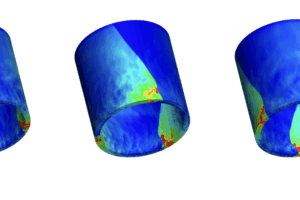Arthur Markman is the Annabel Irion Worsham Centennial Professor of Psychology and Marketing in the Department of Psychology. His research examines the way people think and reason, from the effects of motivation on learning and performance, analogical reasoning and categorization to decision-making and creativity. Markman also is an expert consultant to the Dr. Phil show and writes the blog “Ulterior Motives” for Psychology Today magazine. In his forthcoming book “Smart Thinking,” (Perigee Books, January 2012) Markman distills for readers the information he accumulated over six years of teaching Procter and Gamble employees how to become more effective problem solvers and his decades of cognitive psychological research.

___________
As we approach a new year, it is common for us to take stock of our lives and think about things that we’d like to do differently in the coming year. Often, the resolutions we think about are negative resolutions. That is, we have some behavior that we currently perform that we’d like to stop. It might be quitting smoking, or eating less junk food, stopping drinking or drugs, or even cutting back on bad language.
Unfortunately, if we are thinking about these kinds of resolutions, it is probably not for the first time. Mark Twain is supposed to have said that quitting smoking is one of the easiest things he ever did, he has done it thousands of times.
There are many reasons why stopping these behaviors are difficult, and I have written about some of these difficulties on my blog. Here, I want to focus on the form of the resolution itself.
I called these resolutions “negative resolutions” because they focus on a behavior to be stopped. Often, this behavior is already a habit, and so it is strongly driven by the environment. That is, parts of your environment already suggest the behavior to you. Just drinking a cup of coffee may promote the desire to smoke. Walking through the kitchen may increase the urge to eat.
In order to try to stop a behavior, you have to think about that behavior consciously. That is, if you want to cut down on your eating, you must exert effort to think about what you are doing. To watch yourself to make sure that you don’t eat too much.
Research by Peter Herman, Janet Polivy and their colleagues suggests that people who are actively trying to diet become “restrained eaters.” Restrained eaters are people who are thinking about their diet and about restricting the amount of food they eat. The problem with being a restrained eater is that it creates a paradox. You want to stop eating, so you have to think about your eating behavior. The more you think about eating, the more that concepts related to food and eating stay active. As I have discussed in previous posts, when a concept is active, it is easier for people to perform actions relating to that concept.
So, focusing on reducing your eating can actually make it harder for you to eat less. The same is true for any negative resolution. Thinking about not smoking or drinking or cursing will activate related concepts, which will make it easier to smoke, drink or curse.
In the end, the problem lies with the resolution itself. You cannot replace something with nothing. The habit system will still have connections between the environment and your behavior, and so it will continue to suggest the behavior you are trying to stop. As a result, you will have to continue thinking about stopping the behavior.
So, rather than making negative resolutions, make positive ones. Do not resolve to stop smoking, resolve to start exercising. If you really start an exercise program, your smoking will get in the way, and you will have a reason to stop. Do not resolve to eat less, resolve to eat differently. Cut red meat out of your diet, and start eating other foods. With the number of really good meat substitutes on the market now, it is easy to replace high-fat foods with low-fat foods without sacrificing taste.
If you focus your energies on positive resolutions, then you will not suffer the paradox of negative resolutions. If you start exercising, you will not be consciously thinking about smoking. You will have removed one source of failure in your resolutions.
So in the coming year, think positive!
This story originally appeared on Art Markman’s blog.



